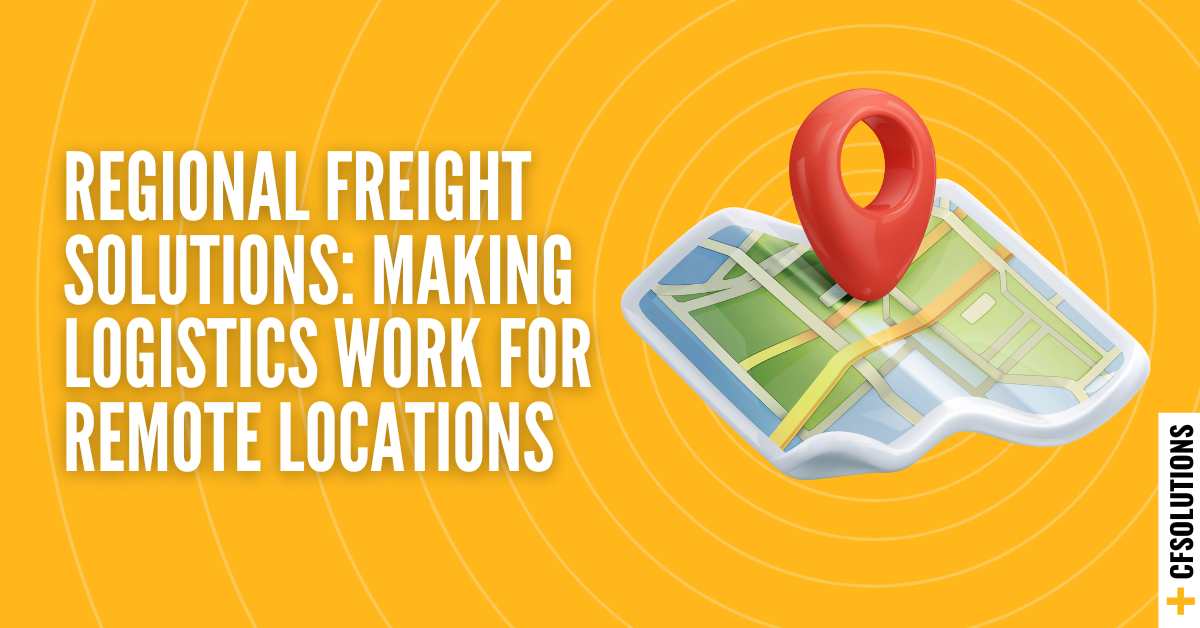
Resilience is no longer optional in today’s freight supply chains—it’s essential. From global disruptions to changing customer demands, businesses need adaptable and robust logistics strategies to maintain operations and stay competitive.
This article highlights key lessons from industry leaders on building resilience in freight supply chains, ensuring businesses are prepared to handle unexpected challenges while optimising efficiency and customer satisfaction.
Diversifying Freight Partners and Modes
One of the most important lessons is the value of diversification. Relying on a single carrier or freight mode can leave businesses vulnerable to delays or disruptions.
- Multi-Carrier Strategies: Work with multiple carriers to ensure flexibility and access to alternative options.
- Multi-Modal Freight: Combine road, rail, air, and sea freight to manage risk and maintain service continuity.
Industry Insight: Businesses that diversified during recent supply chain disruptions were able to maintain operations and meet customer needs more effectively.
Leveraging Technology for Real-Time Insights
Resilient supply chains rely on data-driven decisions and real-time visibility.
- Transport Management Systems (TMS): Enable businesses to track shipments, optimise routes, and monitor carrier performance.
- Predictive Analytics: Anticipate potential disruptions and take proactive measures to minimise impact.
Pro Tip: Choose technology solutions that provide actionable insights to improve decision-making and adapt quickly to changes.
Building Strong Relationships with Freight Providers
Strong partnerships with reliable freight providers are critical for navigating challenges.
- Collaborative Relationships: Foster open communication to ensure your freight providers understand your business needs and priorities.
- Flexibility: Work with carriers who can adapt to last-minute changes or unexpected surges in demand.
Lesson Learned: Industry leaders emphasise the importance of trust and collaboration in ensuring long-term resilience.
Proactive Risk Management
Planning for disruptions before they occur is a hallmark of resilient supply chains.
- Scenario Planning: Develop contingency plans for potential risks like fuel price hikes, weather disruptions, or labour shortages.
- Buffer Stock: Maintain a strategic reserve of critical inventory to minimise the impact of delays.
Example: Businesses that incorporated risk assessments into their logistics planning were able to pivot faster during global freight disruptions.
Emphasising Sustainability and Compliance
Resilience goes hand-in-hand with sustainability and compliance. Customers and regulators increasingly value businesses that prioritise environmentally friendly and safe logistics practices.
- Sustainability Practices: Reduce emissions through route optimisation and fuel-efficient technologies.
- Regulatory Compliance: Ensure adherence to laws like Chain of Responsibility (CoR) to avoid penalties and maintain operations.
Industry Trend: Leaders are integrating sustainability into their resilience strategies to align with market expectations and long-term goals.
Continuous Improvement and Adaptability
Resilient supply chains aren’t static—they evolve based on changing market conditions and customer needs.
- Freight Audits: Regularly review freight performance to identify areas for optimisation.
- Feedback Loops: Use data and customer feedback to refine logistics processes and improve service.
Pro Tip: Adopt a mindset of continuous improvement to ensure your supply chain remains competitive and adaptable.
Building a resilient freight supply chain requires a proactive approach, combining diversification, technology, strong partnerships, and sustainability. By learning from industry leaders, businesses can better prepare for disruptions, improve efficiency, and maintain customer satisfaction in a rapidly changing logistics landscape.
Ready to future-proof your freight supply chain or learn more about customised freight solutions? Contact our team to explore strategies tailored to your business needs.
Subscribe to our Newsletter or Follow Our Socials
Related Posts
- by Customised Freight Solutions
- 0 Comments
Regional Freight Solutions: Making Logistics Work for Remote Locations
Freight logistics in regional and remote Australia comes with unique ...
Read More- by Customised Freight Solutions
- 0 Comments
Reviewing Your Freight in 2026: Why It’s Worth Doing Now
As businesses move into 2026, many freight arrangements are still ...
Read More- by Customised Freight Solutions
- 0 Comments
Freight Performance That Matters: How to Measure Success in 2026
Freight performance plays a critical role in overall business ...
Read More



